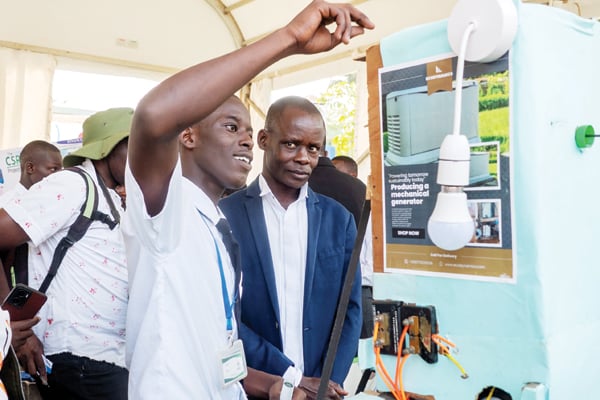
Charity Chelangat
As Uganda celebrated the International Youth Day on Monday, it was a reminder of the immense potential within the young population.
This day is more than just a celebration; it is a call to action, a chance to reflect on the strides made toward youth empowerment, and a reminder of the journey ahead.
In Uganda, the reality for many young people is stark. According to the Human Resources Survey, 41 percent of Ugandan youth are neither educated nor trained. Without immediate intervention, studies indicate this could swell to over 5.8 million by 2030/2031, deepening inequality. The root of this problem is multifaceted, but majorly is the mismatch between the skills youth possess and the demands of the job market.
Prof Apollo Nsibambi (RIP) once observed, “The challenge with Africa is that we train today what was required yesterday.” This highlights a significant issue. The skills imparted to the youth often lag behind the rapidly evolving needs of the job market. Even when young people acquire education or training, it frequently fails to equip them with the tools necessary to thrive in today’s dynamic world.
The solution lies in a robust and targeted skilling strategy that goes beyond traditional professional courses to embrace what is now termed “21st-century skills.” Skills such as communication, collaboration, critical thinking, and innovation are essential for success in a modern work environment yet are rarely taught within the confines of a classroom.
When equipped with relevant skills, young people become more competitive in the job market, contribute meaningfully to economic growth, and drive social change.
Agribusiness is one area where targeted skilling can make a profound impact. The narrative that youth are uninterested in agriculture is misleading. What they need are the tools and knowledge to make agriculture attractive, and profitable—what some call “cool farming.” This involves more than traditional farming to include roles in marketing, input supply, and processing, which offer jobs to the youth.
Internships and mentorships are also crucial in bridging the gap between academic learning and practical application. For instance ,at Oxfam, an internship programme funded by the European Union, helps young people develop soft skills such as teamwork and communication, making them more competitive in the job market. Having started as an intern myself, I can attest to the boast that mentorship and skilling provided.
Thankfully, there are positive examples of youth skilling initiatives in Uganda. Programmes supported by the government and organisations such as Enabel, Irish Aid, Oxfam, and UNICEF are making great strides, but there is a need to consolidate these efforts and address the remaining gaps.
However, skilling alone is not enough. Without a conducive environment for these skills and ideas to flourish, we risk creating a generation of poverty.
Chelangat is the youth engagement and empowerment coordinator at Oxfam in Uganda.




